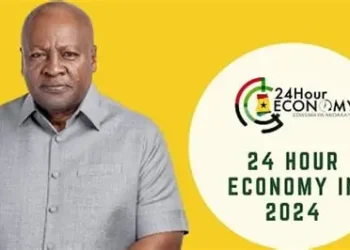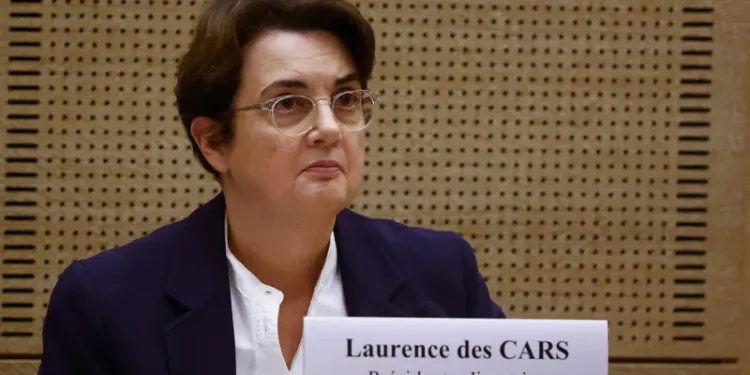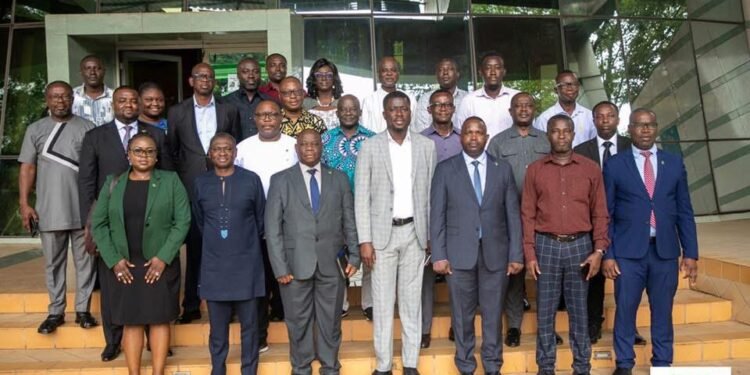First Deputy Governor of the Bank of Ghana, Dr. Maxwell Opoku-Afari, has stated that the country’s development finance should focus on creating the capacity for the private sector to thrive.
As such, he urged the private sector to support the effort to generate the needed capacity to help deliver projects that will benefit them.
“…Focus on creating the capacity for government to deliver the public goods needed for the private sector to thrive. And with capacity I mean, defining creative ways of delivering fiscal space for financing development to close the staggering infrastructure deficit”.
Dr. Opoku-Afari
Speaking at a Public Lecture, Dr. Opoku-Afari stated that Ghana needs US$7 billion annually over the next 10 years to meet its infrastructure gap. According to him, Ghana faces an optimization problem in terms of its development financing. This involves controlling debt levels to make sure it does not constrain growth and poverty reduction efforts.
Consequently, he emphasized that this is the kind of investment we need “to push us into that upper middle income class”. But the First Deputy Governor highlighted that there are constraints to closing the infrastructure gap. As such, he pointed out that it “will require a new paradigm shift in the way we finance development”.
Financing projects to maximize welfare
Consequently, he noted that new ways of financing development projects must ensure the improvement of the living standards of Ghanaians. However, Dr. Opoku-Afari cautioned that efforts towards revenue mobilization will not address the “chronic fiscal deficits and a growing debt burden”, without expenditure rationalization.
“First, is the need to enhance efficiency of public spending, expenditure rationalization, and value for money projects that will deliver projects more efficiently.
“The high levels of government spending required to close the huge infrastructure deficit and debt are limiting fiscal room for maneuver. This therefore calls for the kind of fiscal consolidation that involves both revenue-raising measures and expenditure-rationalization policies”.
Dr. Opoku-Afari
According to Dr. Opoku-Afari, such an approach aims at reducing the overall fiscal deficit to sustainable levels and achieve structural fiscal balance over the medium term. To achieve this, he indicated that government must be efficient and serve as a catalyst for private-sector-led growth and development.
Ensuring value for money
Furthermore, the First Deputy Governor highlighted the need to identify areas where spending is either wasteful, inefficient or does not deliver value for money. This, he noted, will help to either curtail or eliminate them completely.
Additionally, Dr. Opoku-Afari called for the effective handling and scrutinizing of the negotiation of government projects and contracts. This, he believes, will help minimize losses and facilitate value for money considerations.
“I think we need a change in mindset when it comes to negotiating such state projects. We must ask ourselves these key questions: to what extent does the State benefit from such projects? and what are the feasibility studies and cost-benefit considerations that go into these? Technical, operational, financial and economic feasibility must be paramount in such decisions”.
Dr. Opoku-Afari
Furthermore, he stated that efficiency in public spending is also very necessary because the level of tax compliance depends on citizen’s perception of the utilization of such taxes. Thus, their acceptance and compliance are tied to the effective use of these resources.
Dr. Opoku-Afari emphasized that citizens will not honor their tax obligations when they perceive that the revenues will not inure to their benefits.
Additionally, he stated that efficiency in expenditure also requires public financial management reforms. To him, such reforms will increase the efficiency and transparency of public spending to support the tax reform efforts.
READ ALSO: Establishing offices, not capable of fighting corruption- Justice Abdulai























